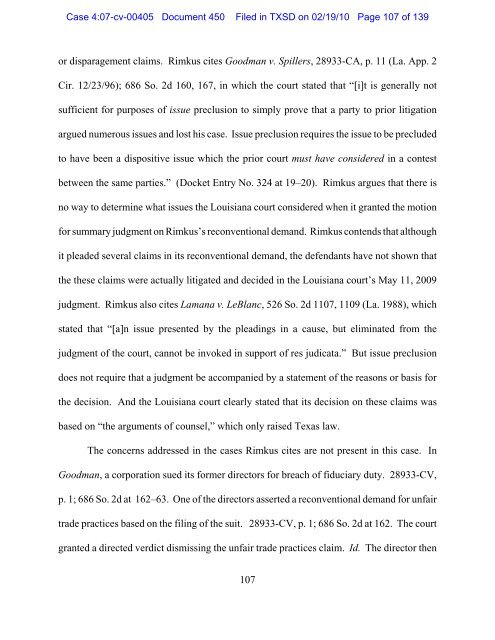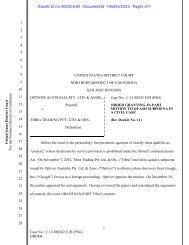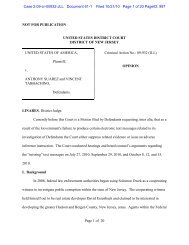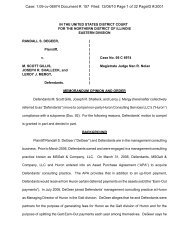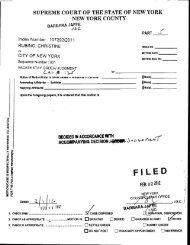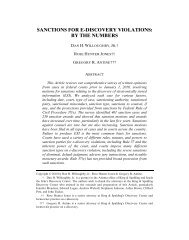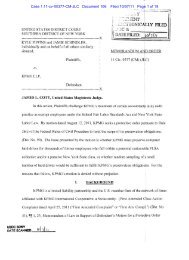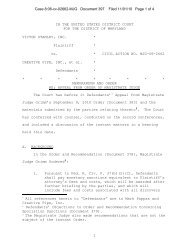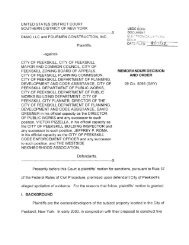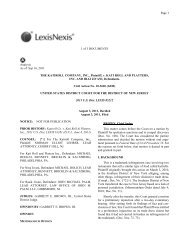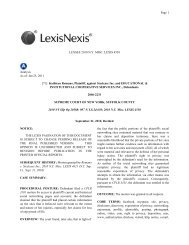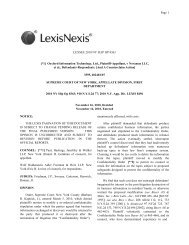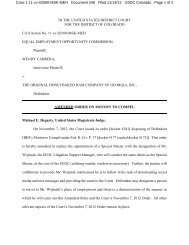Rimkus Consulting Group Inc. v. Cammarata - Ballard Spahr LLP
Rimkus Consulting Group Inc. v. Cammarata - Ballard Spahr LLP
Rimkus Consulting Group Inc. v. Cammarata - Ballard Spahr LLP
You also want an ePaper? Increase the reach of your titles
YUMPU automatically turns print PDFs into web optimized ePapers that Google loves.
Case 4:07-cv-00405 Document 450 Filed in TXSD on 02/19/10 Page 107 of 139<br />
or disparagement claims. <strong>Rimkus</strong> cites Goodman v. Spillers, 28933-CA, p. 11 (La. App. 2<br />
Cir. 12/23/96); 686 So. 2d 160, 167, in which the court stated that “[i]t is generally not<br />
sufficient for purposes of issue preclusion to simply prove that a party to prior litigation<br />
argued numerous issues and lost his case. Issue preclusion requires the issue to be precluded<br />
to have been a dispositive issue which the prior court must have considered in a contest<br />
between the same parties.” (Docket Entry No. 324 at 19–20). <strong>Rimkus</strong> argues that there is<br />
no way to determine what issues the Louisiana court considered when it granted the motion<br />
for summary judgment on <strong>Rimkus</strong>’s reconventional demand. <strong>Rimkus</strong> contends that although<br />
it pleaded several claims in its reconventional demand, the defendants have not shown that<br />
the these claims were actually litigated and decided in the Louisiana court’s May 11, 2009<br />
judgment. <strong>Rimkus</strong> also cites Lamana v. LeBlanc, 526 So. 2d 1107, 1109 (La. 1988), which<br />
stated that “[a]n issue presented by the pleadings in a cause, but eliminated from the<br />
judgment of the court, cannot be invoked in support of res judicata.” But issue preclusion<br />
does not require that a judgment be accompanied by a statement of the reasons or basis for<br />
the decision. And the Louisiana court clearly stated that its decision on these claims was<br />
based on “the arguments of counsel,” which only raised Texas law.<br />
The concerns addressed in the cases <strong>Rimkus</strong> cites are not present in this case. In<br />
Goodman, a corporation sued its former directors for breach of fiduciary duty. 28933-CV,<br />
p. 1; 686 So. 2d at 162–63. One of the directors asserted a reconventional demand for unfair<br />
trade practices based on the filing of the suit. 28933-CV, p. 1; 686 So. 2d at 162. The court<br />
granted a directed verdict dismissing the unfair trade practices claim. Id. The director then<br />
107


